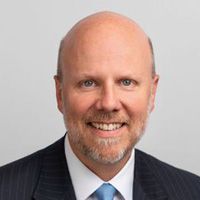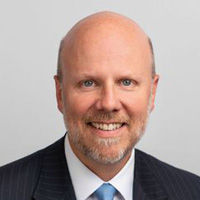Philanthropists Should Encourage Greater Giving – Not Force the Issue
Donor-advised funds have done a lot of people a lot of good, but some argue that the way they work needs to change. But why fix what isn’t broken?


Profit and prosper with the best of Kiplinger's advice on investing, taxes, retirement, personal finance and much more. Delivered daily. Enter your email in the box and click Sign Me Up.
You are now subscribed
Your newsletter sign-up was successful
Want to add more newsletters?

Delivered daily
Kiplinger Today
Profit and prosper with the best of Kiplinger's advice on investing, taxes, retirement, personal finance and much more delivered daily. Smart money moves start here.

Sent five days a week
Kiplinger A Step Ahead
Get practical help to make better financial decisions in your everyday life, from spending to savings on top deals.

Delivered daily
Kiplinger Closing Bell
Get today's biggest financial and investing headlines delivered to your inbox every day the U.S. stock market is open.

Sent twice a week
Kiplinger Adviser Intel
Financial pros across the country share best practices and fresh tactics to preserve and grow your wealth.

Delivered weekly
Kiplinger Tax Tips
Trim your federal and state tax bills with practical tax-planning and tax-cutting strategies.

Sent twice a week
Kiplinger Retirement Tips
Your twice-a-week guide to planning and enjoying a financially secure and richly rewarding retirement

Sent bimonthly.
Kiplinger Adviser Angle
Insights for advisers, wealth managers and other financial professionals.

Sent twice a week
Kiplinger Investing Weekly
Your twice-a-week roundup of promising stocks, funds, companies and industries you should consider, ones you should avoid, and why.

Sent weekly for six weeks
Kiplinger Invest for Retirement
Your step-by-step six-part series on how to invest for retirement, from devising a successful strategy to exactly which investments to choose.
What’s the most effective way to increase charitable giving? Billionaire energy trader John Arnold and his wife, Laura, recently offered one solution. They created the “Give While You Live” campaign, encouraging billionaires to donate a minimum of 5% of their wealth to charity every year.
The Arnolds are putting their money where their mouth is, which is commendable. And they’re not the only ones. Overall charitable giving in 2020 increased more than 10% over the previous year for donors of all income brackets.
For decades, household charitable giving has been stuck around 2% of a family’s adjusted gross income. To make gains, we need people like the Arnolds encouraging a sizable leap toward greater giving. They lead by example and, in so doing, inspire others to act in-kind.
From just $107.88 $24.99 for Kiplinger Personal Finance
Become a smarter, better informed investor. Subscribe from just $107.88 $24.99, plus get up to 4 Special Issues

Sign up for Kiplinger’s Free Newsletters
Profit and prosper with the best of expert advice on investing, taxes, retirement, personal finance and more - straight to your e-mail.
Profit and prosper with the best of expert advice - straight to your e-mail.
A Push for New Rules on How Charity Works
Yet John Arnold isn’t wedded to the “carrot” approach. He’s OK with sticks, too. He and Boston College law professor Ray Madoff are lobbying Congress and the Biden administration to force philanthropists using donor-advised funds (DAFs) to move up the timeline on grant payouts made from these charitable accounts.
Encouraging more philanthropy is critically important but involving the heavy hand of government to mandate payout timelines on DAFs is misguided, in my opinion. Independent philanthropic freedom is critical in a free society and should be preserved.
Arnold and Madoff, moreover, are trying to force sweeping changes to a financial vehicle that safeguards and optimizes a person’s charitable dollars. Why fix what isn’t broken? Instead, we should be celebrating all those who recommend such grants after thoughtful consideration of their own interests, timeline and charitable giving goals.
The past year of giving indicates that donors can and will engage to address problems, especially when massive problems – such as those created by a pandemic and economic crisis – make needs so evident.
DAFs serve as a charitable saving account for donors. There is value in having a rainy-day fund to draw from when times get tough. This past year, we’ve seen that promise play out (as we did, by the way, during the economic downturn of 2008 and 2009).
DAF payout rates are climbing. At more than 20% annually in recent years, DAF payout rates consistently dwarf payout rates of similar charitable vehicles and nearly doubled between 2019 and 2020 as COVID-19 wreaked havoc across the United States.
A Bad Rap for Donor Advised Funds
As Howard Husock, adjunct scholar at the American Enterprise Institute, writes, DAFs award “far more than the 5% which mega-foundations like Gates and Ford are required to disburse” and, as a result, should not be singled out for heavy-handed regulation.
Yet DAFs in particular have been wrongly criticized for years. This is often due to confusion over payout rates, anonymity and growing account balances, which some believe stems from donors taking an immediate tax deduction and then refraining from awarding grants right away.
People forget about the time value of money. As Husock discusses in a recent paper, funds in DAF accounts grow over time, enabling additional generosity. This optimizes a donor’s gift to his or her charity of choice on a timeline that works for the donor’s unique circumstances.
These charitable investment funds, effectively, are an essential financial stewardship tool. Put another way, the purpose of a DAF is to be actively charitable. “Warehousing” money in a DAF is a misnomer, as a DAF is inherently dynamic. Money doesn’t simply “sit” in a DAF — it generally grows in a DAF, and those funds can only be used for an operating charity.
Those with DAFs award grants at higher rates than those overseeing similar funds, and step up to the plate even more during times of crisis, as evidenced by giving trends throughout 2020. The payout rate at DonorsTrust in 2020, for example, was closer to 60%.
Allies of the Arnolds have created additional campaigns, proposed mandates and other initiatives to increase and encourage giving, as well as significantly alter the rules around DAFs. These plans, however, offer a solution in search of a problem.
New Mandates Sought
Despite the proof from 2020 that Americans are happy to give voluntarily, the conversation centered on increasing overall giving continues to include calls for new mandates. Another way to look at it, some groups simply want “more money” from citizen givers.
The Initiative to Accelerate Charitable Giving, the formal name for the Arnold/Madoff proposal, for example, has made efforts to weaken philanthropic freedom through new mandates on private foundations and DAFs to spend their money faster or face punitive measures. For a more detailed discussion about these mendates, visit the Philanthropy Roundtable blog to hear from other subject matter experts.
Mandatory volunteerism is a bit of an oxymoron. Instead, let’s celebrate the diversity of giving inherent in Americans instead of forcing a one-size-fits-all framework on donors.
Inspiring charitable giving through actions is a commendable sort of leadership. Rather than overreach and discourage philanthropy, we should encourage both the wealthy and those of lesser means to give more money the right way.
Especially now, as we emerge into a post-pandemic world, the economic damage of the past 18 months continues to wreak havoc on families in a deeply personal way. We should be praising those who continue to give charitably – regardless of how they do it – rather than succumbing to mandates by those who think they know best how to spend other people’s charitable dollars.
Profit and prosper with the best of Kiplinger's advice on investing, taxes, retirement, personal finance and much more. Delivered daily. Enter your email in the box and click Sign Me Up.

Lawson Bader has served as president and CEO of DonorsTrust since 2015. He has had 20 years' experience leading free-market research and advocacy groups, including the Competitive Enterprise Institute and the Mercatus Center. DonorsTrust is a community foundation safeguarding the intent of accountholders who seek to promote charities that address civic concerns, are mostly privately funded, do not increase the size and scope of government, and promote free enterprise and personal responsibility.
-
 The Tool You Need to Avoid a Post-Divorce Administrative Nightmare
The Tool You Need to Avoid a Post-Divorce Administrative NightmareLearn why a divorce decree isn’t enough to protect your retirement assets. You need a QDRO to divide the accounts to avoid paying penalties or income tax.
-
 When Estate Plans Don't Include Tax Plans, All Bets Are Off
When Estate Plans Don't Include Tax Plans, All Bets Are OffEstate plans aren't as effective as they can be if tax plans are considered separately. Here's what you stand to gain when the two strategies are aligned.
-
 Relying on Real Estate in Retirement? Avoid These 3 Mistakes
Relying on Real Estate in Retirement? Avoid These 3 MistakesThe keys to successful real estate planning for retirees: Stop thinking of property income as a reliable paycheck, start planning for tax consequences and structure your assets early to maintain flexibility.
-
 When Estate Plans Don't Include Tax Plans, All Bets Are Off: 2 Financial Advisers Explain Why
When Estate Plans Don't Include Tax Plans, All Bets Are Off: 2 Financial Advisers Explain WhyEstate plans aren't as effective as they can be if tax plans are considered separately. Here's what you stand to gain when the two strategies are aligned.
-
 Counting on Real Estate to Fund Your Retirement? Avoid These 3 Costly Mistakes
Counting on Real Estate to Fund Your Retirement? Avoid These 3 Costly MistakesThe keys to successful real estate planning for retirees: Stop thinking of property income as a reliable paycheck, start planning for tax consequences and structure your assets early to maintain flexibility.
-
 I'm a Financial Planner: These Small Money Habits Stick (and Now Is the Perfect Time to Adopt Them)
I'm a Financial Planner: These Small Money Habits Stick (and Now Is the Perfect Time to Adopt Them)February gets a bad rap for being the month when resolutions fade — in fact, it's the perfect time to reset and focus on small changes that actually pay off.
-
 Social Security Break-Even Math Is Helpful, But Don't Let It Dictate When You'll File
Social Security Break-Even Math Is Helpful, But Don't Let It Dictate When You'll FileYour Social Security break-even age tells you how long you'd need to live for delaying to pay off, but shouldn't be the sole basis for deciding when to claim.
-
 I'm an Opportunity Zone Pro: This Is How to Deliver Roth-Like Tax-Free Growth (Without Contribution Limits)
I'm an Opportunity Zone Pro: This Is How to Deliver Roth-Like Tax-Free Growth (Without Contribution Limits)Investors who combine Roth IRAs, the gold standard of tax-free savings, with qualified opportunity funds could enjoy decades of tax-free growth.
-
 One of the Most Powerful Wealth-Building Moves a Woman Can Make: A Midcareer Pivot
One of the Most Powerful Wealth-Building Moves a Woman Can Make: A Midcareer PivotIf it feels like you can't sustain what you're doing for the next 20 years, it's time for an honest look at what's draining you and what energizes you.
-
 I'm a Wealth Adviser Obsessed With Mahjong: Here Are 8 Ways It Can Teach Us How to Manage Our Money
I'm a Wealth Adviser Obsessed With Mahjong: Here Are 8 Ways It Can Teach Us How to Manage Our MoneyThis increasingly popular Chinese game can teach us not only how to help manage our money but also how important it is to connect with other people.
-
 Looking for a Financial Book That Won't Put Your Young Adult to Sleep? This One Makes 'Cents'
Looking for a Financial Book That Won't Put Your Young Adult to Sleep? This One Makes 'Cents'"Wealth Your Way" by Cosmo DeStefano offers a highly accessible guide for young adults and their parents on building wealth through simple, consistent habits.